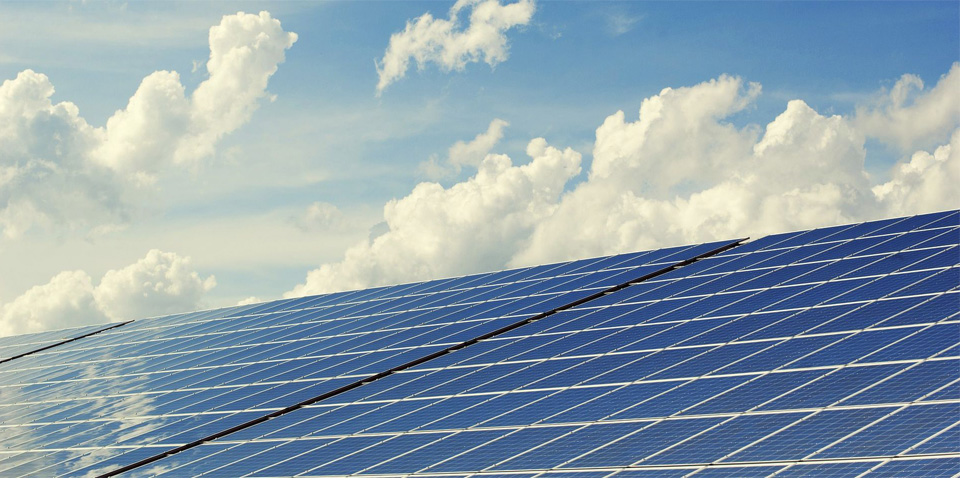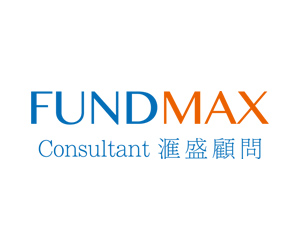Want to be in the loop?
subscribe to
our notification
Business News
BUSINESSES FACE CHANGING GLOBAL TRADE
“Your entrepreneurship and ardour inspire the Government to act more strongly and reform further and faster,” said Prime Minister Nguyen Xuan Phuc at the Vietnam Business Forum (VBF) 2018.
Themed "Sharing Opportunities in the World of Changing Trade,” VBF 2018 was co-organised in Hanoi by the Vietnam Business Forum Alliance, the Ministry of Planning and Investment, the World Bank (WB), and International Finance Corporation (IFC).
The forum consisted of three sessions: Investment resources for infrastructure; Enhancing knowledge for modern industry; and Overcoming obstacles to business.
Businesses must know how to utilise comparative advantages
According to the Prime Minister, the world trade is facing major challenges, including emerging protectionism, trade tensions, and the risk of confidence erosion in the free trade system, but with the optimism of globalisation proponents and supporters of free trade benefits, we still always find opportunities for open cooperation in the mainstream of peace, cooperation and globalisation.
Vietnam's economy is projected to achieve impressive growth, estimated at seven per cent in 2018, much higher than that of other countries in the region. This is the highest growth in 10 years.
He said that Vietnam is now a “major factory” of the world and a supporting point for many transnational corporations to supply competitive products and services regionally and globally. The presence of many world-leading corporations in Vietnam, such as Samsung, Intel, Canon, Fujitsu, Toyota, Honda, Nike, Vinacapital and thousands of other FDI companies, guarantees the quality of investment environment and growth prospects of Vietnam.
In addition, the growth of many private business groups in Vietnam shows that the business environment can fully foster large-scale, competitive enterprises which are desirable partners for international firms. Many Vietnamese companies are no longer doing business only in the domestic market but have reached out to global markets to affirm their positions and international competitiveness.
More and more Vietnamese products appear on the world export map. Vietnam now has more than 20 billion-dollar exports potentially grown by huge supply chains. Vietnam is the largest world exporter of many agricultural products including rice, black pepper, coffee and pangasius. A lot of fruits and vegetables such as dragon fruit, mango, longan, litchi, rambutan and grapefruit are cultivated and tended under smart and organic agricultural practices and are exported to many countries and regions that impose strict import standards, such as the United States, Europe, Japan, South Korea and Australia. The untapped potential of the agricultural “gold mine” will be a magnet for the huge investment and cooperation that Vietnam expects.
Prime Minister Phuc said that Vietnam should see this as the natural shift of sea currents. There are cold currents and hot currents as well, but it is entirely possible to make use of these “commercial currents” to push Vietnam’s ship faster to its destination.
If investment flows move from low to higher productivity; trade shifts from high to lower productivity. Tariffs may temporarily distort trade flows, but the mainstream is still determined by productivity differentials.
According to the Prime Minister, if businesses do not see and promote their comparative advantages, it will be very difficult for them to compete and succeed. Amidst changing global trade flows, each country does not necessarily have to be absolutely strong to be the winner, but it only needs to promote its relative competitive advantage and its own strengths to create different values, and can be successful.
Towards a prosperous Vietnam
The Prime Minister said, in order to seize opportunities and to make cooperation more productive, all stakeholders should work closely together. The first and foremost is the endeavour of Vietnamese companies. All businesses have comparative advantages. If these advantages are identified and promoted properly, they will produce the first half of success. In addition, in the current context, to reach out to the vast sea, they need to stop waiting for government support. Instead, they should actively grasp opportunities and existing megatrends, learn and make ongoing innovations to grow and succeed further.
The second is cooperation and opportunities shared by foreign direct investment (FDI) enterprises. The Government of Vietnam wants more international corporations and FDI firms to be more open with their supply policies; create more opportunities and support Vietnamese companies to get involved more deeply in value chains; and place more confidence in the capacity of Vietnamese partners.
The third is to promote the Government’s roles in enabling development and support. Accordingly, the Government is determined to uphold political, social and macroeconomic stability. The stable political, social and macro environment together with an optimal geopolitical position will be a remarkable comparative advantage of Vietnam in the face of a turbulent world and a serious erosion of confidence. The Government pledges to further strengthen structural reforms, improve institutional quality, governance capacity at both central and local levels), reform State-owned enterprises (SOEs) and financial systems, tackle bad debts and manage public debts. It will strive to clear congestion for faster and more sustainable development.
Mr Kyle F. Kelhofer, Country Director for Vietnam, Laos and Cambodia of the International Finance Corporation (IMF), said Vietnam's entry into the new-generation free trade agreements (FTAs) will open an important door which is not only an opportunity to trade and connect, but also a catalyst to reform the economy of more than 90 million people. Vietnam is a destination of choice for many investors.
However, he said that the next step for the government and the business community is attracting FDI flows not only in quantity but also in quality. Solutions cited by him include infrastructure investment, labour quality improvement, integrated supply chains, business and investment climate, and private sector support for global supply engagements.
“Modern Vietnam is moving towards prosperity. This will be the next stage of this country,” he said.
Mr Tomaso Andreatta, VBF Co-chair, said Vietnam needs to pay special attention to rapid and sustainable development. The country needs to invest more in infrastructure because current investors are keen on this. It needs to find ways to open up the market for more appropriate infrastructure investment in addition to new energy and logistics.
“Vietnamese enterprises should strive to adapt to rapidly changing global trade and investment requirements. They should particularly focus on energy supply and infrastructure development to improve national competitiveness and business support. Vietnam should aim for rapid but sustainable growth, coupled with environmental protection with lower costs. Especially, businesses need to overcome restrictions to sharpen competitiveness, boost creativity, seize business trends to survive and contribute more to the economy,” Mr Andreatta stressed.
Mr Nguyen Chi Dung, Minister of Planning and Investment
To date, as many as 128 countries and territories have invested in Vietnam, in a total of about 26,000 projects with a combined registered capital of over US$326 billion, of which US$180 billion has been disbursed. The FDI sector is asserting its increasingly important role in Vietnam’s economy, contributing about 25 per cent of total social investment, 20 per cent of gross domestic product (GDP), 50 per cent of industrial value, and 72.6 per cent of export value. It has generated 3.6 million direct jobs and 5 - 6 million indirect jobs.
The FDI sector has created ripple effects on all economic sectors by spreading advanced technology and international standards in corporate governance, raising working skills development, and generating jobs. Nevertheless, the linkage between the FDI sector and the domestic business sector in value chains has not been as strong as expected. Supporting industry development and technology transfer are still low.
In order to strengthen the linkage, foreign enterprises need to actively facilitate Vietnamese enterprises to engage in value chains. Domestic enterprises must endeavour to adapt to modern management thinking, access advanced technology, improve skills and expertise, increase production capacity, and enhance product quality and competitiveness. To accompany enterprises, the Government must take practical measures to facilitate the linkage between domestic companies and foreign firms in an effective and accessible way.
Mr Nicolas Audier, Chairman of the European Chamber of Commerce in Vietnam (EuroCham)
To ensure Vietnam is regionally competitive and aligned with best practices and increasingly secure global standards, Vietnam ought to adopt a data classification system whereby only national security data must remain in Vietnam.
The Government should make a wider assessment of impacts of the Cybersecurity Law on both foreign (direct) investors and the whole economy. It may consider applying a data classification system where only national security data is stored in Vietnam to help the country maintain a competitive advantage in the region.
Businesses in Vietnam are leveraging ICT innovations and capabilities to better enable business and participate in cross-border trade. Many companies use cloud computing, social media, e-payments, and smart technologies to run their business.
Many such technologies are provided by international providers, which are not based in Vietnam and which require the free-flow of cross-border data to provide their services and tools. In the current context of ASEAN, Vietnam’s future attractiveness and competitiveness in attracting high-tech and innovation-driven FDI will be impacted by the Cybersecurity Decree in comparison to other ASEAN member countries. As such, Vietnam will soon be the only country in ASEAN with a national data residency requirement.
Therefore, to ensure Vietnam remains regionally competitive and aligned with best practices and increasingly secure global standards, EuroCham recommends that Vietnam ought to adopt a data classification system whereby only national security data must remain in Vietnam – countries such as Indonesia are adopting this approach.
Hence, the need to classify data as previously highlighted, ensuring an appropriate balance is reached between national security and public safety, data protection and privacy and socioeconomic development through a thriving digital economy.
Mr Michael Kelly, Chairman of the American Chamber of Commerce in Vietnam (Amcham)
Ongoing US - China trade tensions highlighted risks of centralised manufacturing facilities in a single country and leveraged supply chain reorganisation.
Statistics from a recent survey on US enterprises in China show that one-third of respondents moved or are considering moving their production factories to other countries amidst trade tensions, and Vietnam is benefiting from such enterprises. Half of foreign enterprises from other countries are considering plans to move out of China, and Southeast Asia is considered their best choice.
The question is how Vietnam can harness this opportunity to continue to boost rapid economic growth. In fact, the country attracts a lot of foreign investment.
However, some officials are questioning whether many foreign businesses in Vietnam are really good for Vietnam’s economy.
For example, a member of the National Assembly recently said, “With FDI enterprises accounting for more than 70 per cent of total exports, Vietnam will be affected when these firms withdraw from Vietnam.” We all here want to ensure that there is no reason for them to leave Vietnam.
More importantly, ineffective bureaucratic procedures must be controlled, and national regulatory and tax frameworks must be stable and predictable.
Mr Koji Ito, Chairman, the Japanese Chamber of Commerce and Industry in Vietnam
Infrastructure development is vital to Vietnam’s long-term economic growth and the active, flexible introduction of public-private partnership (PPP) schemes is certainly one of the most effective ways to improve infrastructure.
We highly appreciate that the government has taken steps to encourage PPP investment. For instance, the introduction of Decree 63 in May 2018 has simplified PPP procedures, such as eliminating the need to obtain an investment registration certificate for projects. However, in order to enhance the effectiveness of promoting infrastructure growth in the country, the Government should stipulate foreign laws are used as applicable laws; allow dispute resolution by arbitration outside Vietnam on all infrastructure projects, including those involving real estate; allow investors and project executors to mortgage land use rights, assets on land, and the right to operate project facilities; and share part of risks pertaining to termination of payments and foreign exchange certificates.
Source: VCCI
Related News

VIETNAM’S GDP TO GROW 5.5% THIS YEAR – WB
This forecast is based on the assumption of a moderate recovery in manufacturing exports in 2024, fueled by rebound growth of 8.5% year-on-year in the fourth quarter of 2023 and 17.2% year-on-year in the first quarter of 2024, reflecting strengthening global demand, said Dorsati Madani, senior country economist at the WB in Vietnam.

FARE REFUND FOR VISA REJECTION
Cathay Pacific will offer full refunds for cases of visa rejection to provide you with the confidence to explore the world with ease. If you are planning to fly to a destination that requires an entry visa, you can now book with greater peace of mind.

FOUR COMMODITIES POST Q1 EXPORT VALUE OF OVER 5 BILLION USD
The total export turnover of agricultural, forestry, and fisheries products in the first three months of 2024 is estimated to reach 13.53 billion USD, an increase of 21.8% compared to the same period of 2023.

MOIT PROPOSES SCHEME TO BOOST RENEWABLE ENERGY PROCUREMENT
The proposed Direct Power Purchase Agreement (DDPA) mechanism, outlined in the draft decree, targets organisations and individuals consuming electricity from the 22kV power grid or higher, with a monthly consumption averaging 500,000kWh. However, residential households are excluded from direct procurement.

REAL ESTATE BONDS PLACE PRESSURE ON ISSUING FIRMS
The ministry’s recent report underscores concerns within Vietnam’s corporate bond market for 2023 and 2024. It emphasizes the critical need to address hindrances to the real estate sector in line with the objectives provided in Government Resolution No. 33/NQ-CP, which aims to stabilize the industry.

DA NANG CUSTOMS FOCUSES ON DEVELOPING CUSTOMS-BUSINESS PARTNERSHIPS
Da Nang Customs Department issued an action plan for developing customs-business partnership in 2024. One of the new events this year is the workshop on “Settlement reports for enterprises engaged in outsourcing, export production and export processing” held in Da Nang Customs Department on April 16, 2024.

































